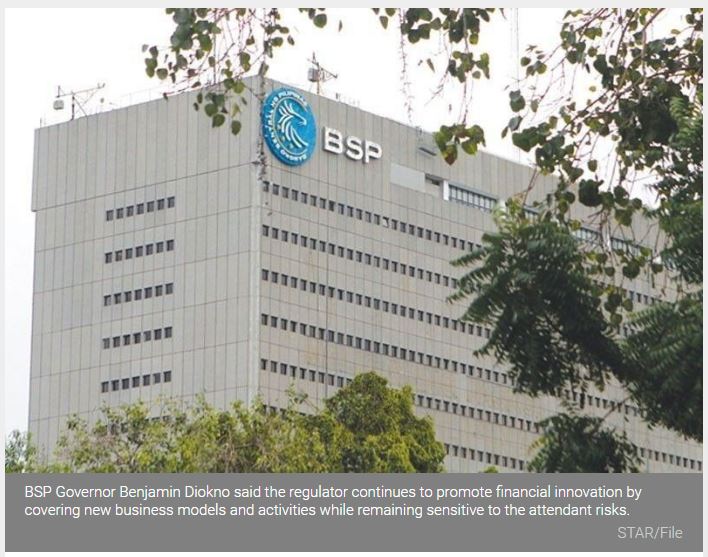Philippines: BSP sets guidelines on virtual asset service providers
MANILA, Philippines — The Bangko Sentral ng Pilipinas (BSP) has issued guidelines for virtual asset service providers as the deadline for the country to strengthen its anti-money laundering and terrorism financing imposed by Paris-based Financial Action Task Force (FATF) looms.
The Monetary Board approved the changes to the regulations on virtual currency exchanges (VCEs) issued in 2017, and now covers virtual assets and the operations of virtual asset service providers to prevent the country from becoming a haven for the financial transactions of criminals and terrorists.
BSP Governor Benjamin Diokno said the regulator continues to promote financial innovation by covering new business models and activities while remaining sensitive to the attendant risks.
“We have seen accelerated growth in the use VCEs in the past three years and it is high time that we broaden the scope of existing regulations in recognition of the evolving nature of this financial innovation and set out commensurate risk management expectations,” Diokno said.
Diokno also said the newly approved framework expanded the activities subject to the licensing regime of the BSP from initially covering those involved in facilitating the exchange of fiat and virtual assets, including cryptocurrencies, particularly bitcoins.
The exchange between one or more forms of virtual assets, the transfer of virtual assets, as well as the safekeeping and administration of virtual assets or instruments enabling control over virtual assets are now subject to the BSP’s licensing requirements and regulatory expectations for money service businesses.
According to the BSP, these activities are also subject to anti-money laundering, countering the financing of terrorism and proliferation financing (AML/CFT/PF) obligations.
Diokno said the new regulatory framework is aligned with financial technology (fintech) industry’s best practices and is consistent with risk management standards set by international standard-setting bodies such as the FATF.
“This will ensure that activities relating to virtual asset service providers are executed within an unbroken chain of regulated entities,” the BSP chief said.
Under the new guidelines, all transactions involving the transfer of virtual assets shall be treated as cross-border wire transfer and that virtual asset service providers are expected to comply with corresponding BSP rules governing wire transfer, particularly on the obligation to provide immediate and secure transmittal of originator and beneficiary information.
Furthermore, the BSP said other existing rules and regulations for MSBs, such as those on outsourcing, liquidity risk management, operational risk management, information technology risk management, and financial consumer protection must be complied with upon securing the authority to perform virtual asset service providers activities from BSP.
Anti-Money Laundering Secretariat executive director Mel Georgie Racela earlier said the Philippines is hoping the FATF would consider the impact of the pandemic on the delay in the passage of the amendments to the country’s anti-money laundering law.
Racela said the financial intelligence unit is ready to implement the changes to Republic Act 9160 or the Anti-Money Laundering Act of 2001 once signed by President Duterte.
The Philippines is running out of time and is in danger of being included in the gray list of FATF-International Cooperation Review Group (ICRG) for failing to address the issues raised in the latest Mutual Evaluation Report.
The STAR earlier reported the country’s observation period has been extended to February this year due to the global health crisis. The FATF would decide in June whether or not the Philippines would be included in the watchdog’s gray list.
“We can only hope that the FATF-ICRG can be flexible to consider these activities, taking into account the delays in the passage of the law brought about by the COVID-19 pandemic,” Racela said.
The recent passage of Republic Act 11479 or the Anti-Terrorism Act (ATA) of 2020 is not enough for the Philippines to avoid the re-inclusion in the gray list of the global dirty money watchdog.
Source: https://www.philstar.com/business/2021/01/27/2073240/bsp-sets-guidelines-virtual-asset-service-providers


 English
English




